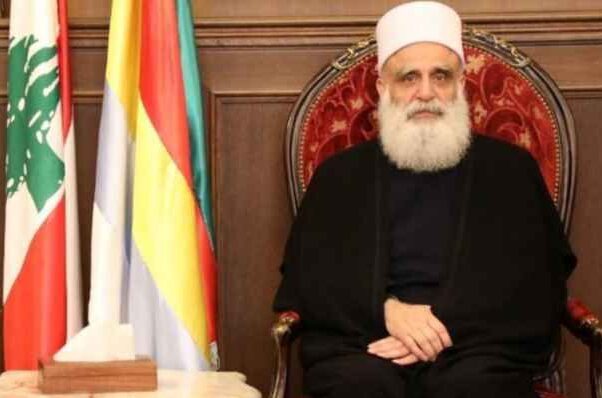Sheikh Dr. Sami Abi Al-Muna, the top spiritual leader of the Druze community participated in the reception held by the Saudi Embassy on the occasion of the National Day of the Kingdom of Saudi Arabia, at the site of the Roman ruins in central Beirut. He was accompanied by the President of the Druze Court of Appeal, Judge Faisal Nasser Al-Din, and the Chairman of the Druze Cultural Committee of the Sectarian Council, Sheikh Imad Faraj. .
On the occasion, Sheikh Al-Aql Abi Al-Muna extended congratulations and blessings to the Custodian of the Two Holy Mosques, King Salman bin Abdulaziz, and his Crown Prince, Prince Mohammed bin Salman bin Abdulaziz, on the occasion of the Saudi National Day, praising “the positive role that Saudi Arabia has played and is playing towards Lebanon, to help it in its challenges that it faces from time to time.”
Sheikh Dr. Abi Al-Munna also expressed his “appreciation for the depth of the close relationship that brings together the two countries and the opportunities available to Lebanese youth and businessmen in the Kingdom,” asking “God Almighty to grant the Kingdom of Saudi Arabia continued security, stability and prosperity and the wise Saudi leadership good luck and success in its pioneering steps at the level of The Arab and Islamic worlds and the entire world.”
Bukhari calls for speeding up the election of a president
Saudi Ambassador to Lebanon , Walid Bukhari pointed out that “Saudi Arabia is keen on the security and stability of the region and achieving prosperity in all Arab countries.”
He pointed out during the celebration marking the Saudi National Day: “We share a common international responsibility in order to preserve Lebanon’s stability and protect its sovereignty.”
He stressed that “the presidential vacuum is of great concern and threatens achieveing the needed reforms. We have always stressed that sustainable solutions come only from within Lebanon, and that the presidential election is an internal Lebanese matter, and we are confident that the Lebanese can bear responsibility.”


Leave a Reply
You must be logged in to post a comment.